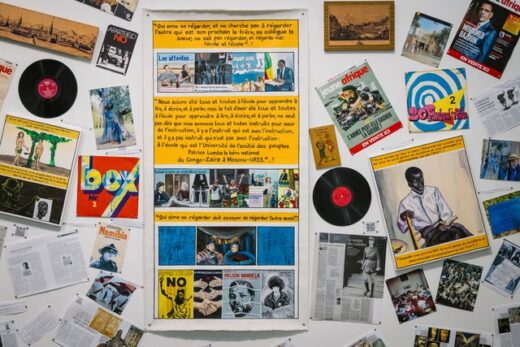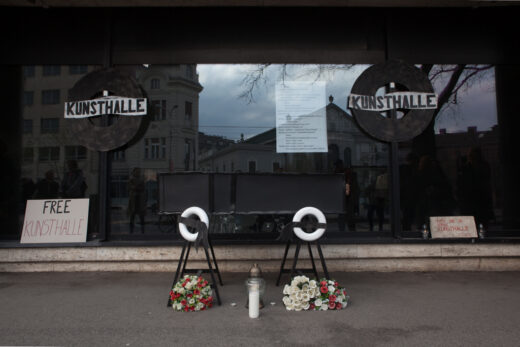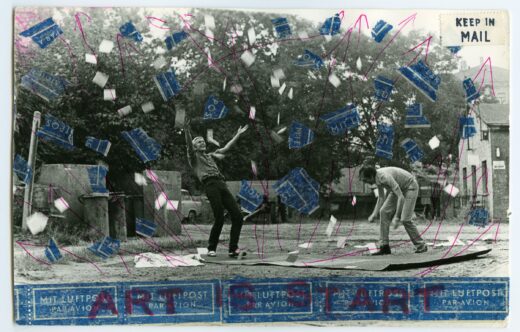Some Notes on Transnational Art History in Practice: Revolutionary Romances? Global Art Histories in the GDR at the Albertinum
Revolutionary Romances? Global Art Histories in the GDR at Albertinum, Staatliche Kunstsammlungen Dresden, November 4, 2023–June 2, 2024
A decolonial discourse that has materialized in exhibition practices in recent years has set us on a course of unlearning and exploring potentially lesser-known histories. The exhibition Revolutionary Romances? Global Art Histories in the GDR at the Albertinum in Dresden (November 4, 2023–June 2, 2024) shows that we still have much to learn about the histories and forgotten cultural heritage of the Cold War. With two hundred historical art objects, most of them from the Dresden State Art Collections (Staatliche Kunstsammlungen Dresden, … Read more







